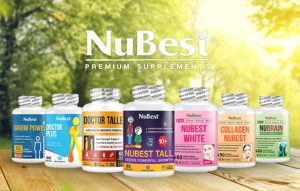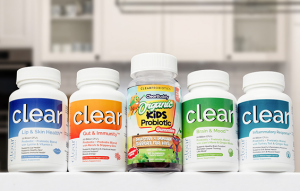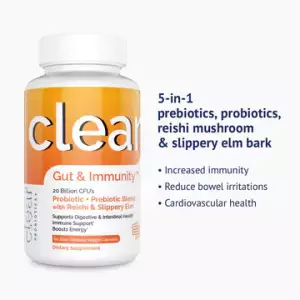Table of Contents
ToggleMaintaining a healthy diet is vital for ensuring good health and longevity. While a balanced diet is the foundation of good health, sometimes it may not provide all the necessary nutrients that our bodies need. This is where supplements come in – they provide an additional source of vitamins, minerals, and other essential nutrients. The market is flooded with supplements, making it challenging to choose the right ones. Organic supplements have gained popularity due to their natural ingredients, fewer additives, and potential health benefits.
This comprehensive buying guide will discuss the benefits of organic supplements and how to choose the right ones for you. We will cover various aspects of organic supplements, including their ingredients, production processes, and certification standards. We will also examine their effectiveness, safety, and potential side effects
What Are Organic Supplements?
Organic supplements are natural products derived from plant or animal sources that are free from synthetic chemicals. These supplements are increasingly popular among health-conscious individuals who are looking for a natural and healthy alternative to traditional supplements
What are essential vitamins?
Essential vitamins are crucial nutrients that our bodies need to function properly and stay healthy.
These vitamins cannot be synthesized by our bodies, so we must get them from our diets or supplements. Some of the essential vitamins include vitamin A, B-complex vitamins, vitamin C, vitamin D, vitamin E, and vitamin K. Additionally, fish oil is a valuable source of essential omega-3 fatty acids, which are beneficial for heart and eye health and, brain function, and inflammation control. Incorporating fish oil into your diet is an excellent way to ensure you are getting enough of these essential nutrients.
How Do Organic Supplements Differ From Regular Supplements?
Organic supplements differ from regular supplements in several ways.
Firstly, they are made using natural ingredients and are not processed using synthetic methods. Secondly, they are free from artificial colors, additives, fillers, and preservatives, making them a safer and healthier option. Lastly, they are produced using sustainable and eco-friendly methods that minimize the impact on the environment.
What Are the Benefits of Choosing Organic Supplements?
Choosing organic supplements over non-organic ones has numerous benefits.
Organic supplements contain high doses of essential vitamins, minerals, and other nutrients, that are easily absorbed by the body, providing the necessary nourishment to keep the body functioning at optimal levels. They are also more environmentally friendly as they are produced using sustainable and eco-friendly methods that minimize the impact on the environment.
Organic supplements are also generally better tolerated by the body, making them a safer option for those with sensitive digestive systems.
They can help to avoid harmful side effects that are often associated with non-organic supplements, such as nausea, headaches, and allergic reactions.
Why Choose Organic Supplements?
When it comes to supplements, there are many options available on the market. However, not all supplements are created equal. Here are some reasons why you should consider choosing organic supplements over their non-organic counterparts.
Avoid Harmful Chemicals
One of the most significant benefits of choosing organic supplements is the avoidance of harmful chemicals.
Organic farming practices prohibit the use of synthetic fertilizers and pesticides, which can have adverse effects on human health. By choosing organic supplements, you can rest assured that the ingredients are free from potentially harmful substances.
Support Sustainable Farming Practices
Organic farming practices are more sustainable than conventional methods.
Organic farms use natural methods to promote soil health wild nutrition and biodiversity, which helps to reduce the environmental impact of farming. By choosing organic supplements, you are supporting sustainable farming practices that help to protect the planet.
Reduce the Risk of Pesticide Residues
Non-organic supplements may contain pesticide residues, which can have harmful effects on human health. Choosing organic supplements can help to reduce your exposure to these chemicals, making them a safer choice for your overall health.
Benefit from Natural and Whole Food Sources
Organic supplements are often made from natural and whole food sources, providing a rich array of nutrients that your body needs.
By choosing organic supplements, you are getting high-quality ingredients that are free from artificial flavors, colors, or preservatives.
What to Look for When Buying Organic Supplements
When looking to buy organic vitamins and supplements, it’s important to consider several factors to ensure that you’re getting a high-quality product that meets your specific needs.
Another important factor to consider is the ingredients in the organic supplement. Make sure that the supplement contains the specific nutrients b vitamins and minerals or substances you’re looking for and that they are sourced from high-quality, organic ingredients.
It’s also crucial to check for any certifications or seals of approval on the label that claims the organic supplement. Look for certifications from reputable organizations such as the USDA, Non-GMO Project, or NSF International to ensure that the product meets certain standards and has undergone rigorous testing.
Ingredients: Checking the Quality
When looking to buy organic supplements, the first thing to check is the ingredients list.
Make sure that all components are truly organic and free of any harmful chemicals or additives. Look for supplements made with whole food ingredients that are minimally processed, as these tend to be more nutrient-dense and easier for your body to absorb.
Supplement Companies: Doing Your Research
It’s essential to research the company that produces the dietary supplement first.
Look for a brand with a strong reputation for quality and transparency in its manufacturing process.
Consider reading customer reviews of popular supplements and checking the company’s website to learn more about their sourcing practices and quality control measures.
Certifications and Standards: Understanding What They Mean
Another important factor to consider when buying organic supplements is the certifications and standards that the product meets. For example, look for supplement store brands that are certified organic by reputable organizations such as the USDA or Canada Organic.
Additionally, look for supplements that have been tested by third-party organizations for purity and potency, as this can help ensure that you’re getting a product that is safe and effective.
Reading Supplement Labels: Paying Attention to Details
When reading supplement labels, pay attention to the recommended dosage and any potential side effects or interactions with other medications.
Consult with a healthcare professional before starting any new supplement regimen to ensure that it is safe and the recommended dose is appropriate for your individual needs.
The Benefits of Popular Organic Supplements
Supplements offer a natural and effective way to improve overall your health status athletic performance and well-being.
With the right supplement choices and guidance from a healthcare professional, individuals can enjoy the many benefits that these supplements have to offer their health condition.
Omega-3 Fatty Acids
Omega-3 fatty acids, found in fish oils, have numerous health benefits.
They can promote heart health by lowering blood pressure and reducing the risk of heart disease. Additionally, they support brain health and can help alleviate symptoms of depression and anxiety.
Fish Oil Supplement
Fish oil is derived from the tissues of oily fish like salmon, tuna, and mackerel.
It contains high amounts of eicosapentaenoic acid (EPA) and docosahexaenoic acid (DHA), two types of omega-3 fatty acids that play important roles in our body’s cellular function. EPA and DHA are particularly beneficial for reducing inflammation, improving cardiovascular health, and supporting brain function.
Fish oil supplements are widely available and can be a convenient way to increase your intake of these essential nutrients. However, it’s important to consult with a healthcare professional before starting any new supplement regimen.
Probiotics
Probiotics are living microorganisms that can provide health benefits when consumed in adequate amounts.
They are commonly found in fermented foods like yogurt, kefir, and sauerkraut, as well as in dietary supplements. These microorganisms, mostly bacteria but also some yeasts, work by balancing the gut microbiota and promoting a healthy digestive system.
Studies have shown that probiotics positively affect various health conditions, such as diarrhea, irritable bowel syndrome, and some allergies.
Although probiotics are generally safe, healthcare professionals always recommend consulting with them before adding probiotics to your diet.
Multivitamins
Multivitamins offer a combination of essential vitamins and minerals other nutrients that are often lacking in the typical Western diet. They can help reduce the risk of chronic diseases like cancer and support the immune system to function.
Multivitamins are especially beneficial for those who struggle to consume enough nutrients in their diet.
Choosing the Right Dietary Supplements for Individual Health Needs
It’s important to choose the right supplement based on individual health needs.
For example, pregnant women, and those with a history of heart or cardiovascular disease, may benefit more than most adults from omega-3 supplements, while those with gut issues may find probiotics to be more helpful.
Consulting with a healthcare professional or a registered dietitian can provide valuable insight into which supplements are right for each individual.









